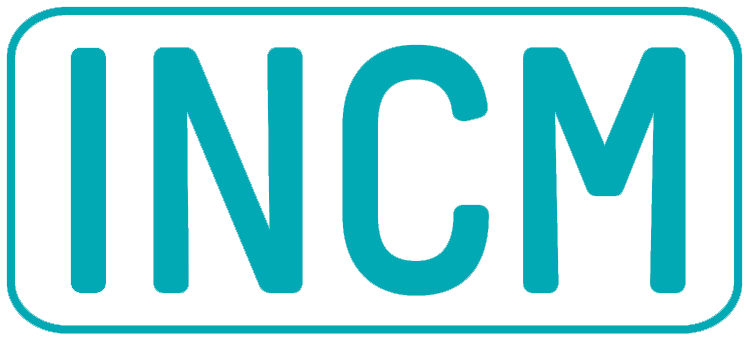 by Jackie Mills Fernald
by Jackie Mills Fernald
Meet my friend Jimmy. Jimmy is sixteen years old and has Autism. Jimmy paces at times, is socially awkward, becomes fixated with things and is incredibly inflexible when schedules or routines are changed; but Jimmy is on fire for the Lord. Jimmy is in a home small group with a leader that is not an expert on Autism but an expert on Jimmy. The leader knows to make allowances and accommodations for him. He is able to move freely when the need to pace hits him. The group of teens has learned how to respond to Jimmy and, on occasion, ignore certain behaviors that may not be appropriate.
This summer, Jimmy went on the youth mission trip to the Dominican Republic and served with a group of guys on the baseball clinic team. He has a passion for baseball and knows all baseball stats. He shared the Gospel with locals, like every other teen on the trip. Prior to leaving for the Dominican Republic, Jimmy worked as a paid counselor at a four-week summer camp for children with disabilities. The camper to whom Jimmy was assigned, a young boy named AJ, has Autism as well. There was never any pressure for Jimmy to initiate conversation, which at times is difficult for him, as his camper was content with periods of silence. Who better to understand AJ’s quirky behaviors, social deficits and rigidity than Jimmy?
Jimmy’s leader was a special educator who had a way of communicating with Jimmy and keeping him on task as an excellent employee. With minimal coaching, Jimmy was able to be a productive, contributing team member. Jimmy loves organization and tidiness; his director capitalized on that strength each day and put Jimmy on set-up and clean-up crew. Jimmy also excelled in completion of recurring tasks, whereas other staffers might get bored or want changes. Not Jimmy; he prefers repetitive tasks. Another of his jobs was to load each camper’s car seat in the appropriate van’s seat row every day. You can bet with Jimmy it was done correctly. Because daily change was a challenge, his director had to remember to frontload Jimmy with information whenever there was to be a major change in the day or program. As long as Jimmy was prepared in advance, days ran smoothly.
Jimmy has grown up in the church. As other twelve-year-olds moved out of children’s ministry into Junior High programming, Jimmy did as well. Two years ago, when all the fourteen-year-olds graduated into senior high, Jimmy did as well. Jimmy’s story is unique in that whatever age or stage he is in, the church has a place for him. Many churches that have begun reaching out and caring for children with disabilities have forgotten one thing in their church plans: all children with or without disabilities GROW UP. Jimmy has never been held back because of social deficits or his odd behaviors but instead, has been in programming with his peers since having started attending church. While the idea of continuum of service and programming for persons with disabilities worked for Jimmy, it is still a challenge for so many other churches.
Many times, church leaders believe because a child, youth or teen may have a disability, it might be better to keep them back with a younger group. After all, many have cognitive impairments not equal to their biological years. All of us need to be in age-appropriate environments and programming. As children with developmental disabilities begin to reach the tween/teen years, they too develop dreams, aspirations and become interested in the opposite sex as their typical peers do. Youth with disabilities want to grow up like everybody else. The goal for all persons with disabilities is to become as independent as possible. One way of achieving this goal is by treating a tween or teen as such, not as a child. Church programming should be reflective of this.
As churches strive to become more and more inclusive, regardless of ability level or stage of life, from cradle to grave, there is a place for everyone in the Body of Christ. It requires all leaders (children, youth and young adult) to discuss who in their existing programs may have special needs and how they can successfully be transitioned into to the next level. There needs to be a process to share information regarding students’ ability levels, what supports they may need in existing programs and how to develop a plan to graduate students up. The plan should take into account how best to introduce students to new staff, volunteers, locations and programming formats. And consider what kind of programming may be best and what small group might be most appropriate. When leaders of multiple ministries come together, they are able to brainstorm and develop the best road map for a successful transition that enables an individual with disability to navigate church life and continue to grow in his or her faith.
Instead of saying we have no program for an individual with disability, why not ask, “What do we need to do to make a place for them in the body, so even those with disabilities have a church life like yours and mine?” Jimmy has a life like that; a life where he is able to impact those in the church, community and globally with the love of Christ, even with his diagnosis of Autism, because Jimmy has a church family that sees past his disability and sees his ability and potential as a child in Christ and Kingdom builder.
Tips and Suggestions for Integrating Tweens/Teens with Disabilities into Church Programming
- Foster and create inclusive friendships OUTSIDE the church walls; connect typical teens with differently-abled teens for fellowship, recreational, and social opportunities.
- Train and coach typical teens how to engage teens with disabilities. Teach them how to communicate and relate with those who often experience the world differently.
- Create natural supports in tween/teen programs, connecting those who need additional support with peer buddies to assist with activities, learning, and social situations.
- Network with organizations and para-church organizations that provide programming and support to tweens/teens with disabilities. Check out Capernaum Young Life at www.younglife.org/Capernaum/.
- Throw a community-wide outreach event that is more than fun for tweens/teens with disabilities; make it open to all in the community impacted by disabilities. Take a look at the Jesus Prom at brianwalton.wordpress.com/2008/11/16/jesus-prom-2008/.
- Work with youth leaders to do site visits to all possible camp and retreat sites for youth ministry to ensure venues are fully accessible for all abilities.
- Create service projects in the church and community for youth in which all can participate; include those with disabilities, and provide support or buddies, if necessary. There is nothing more fulfilling than for all of us to serve others.
- Facilitate Children’s Ministry leaders and Youth Ministry leaders to work together and talk across ministries to develop transition plans to graduate students up to the next level.
- Keep activities and materials age appropriate for youth with disabilities. Do not baby them; treat them like every other person in the group.
- On all registration and sign-up forms, include a section for information regarding the identification of a youth’s special needs, necessary accommodations, and modifications; communicate that all are welcome regardless of ability level.
- Inquire about parent and school goals for youth with disabilities, including social, life skills, development, and independence; work with youth to be all God has created them to be.
As Director of Access Ministry at McLean Bible Church, Jackie leads one of the largest disability ministries in the United States. Through her advocacy for inclusion of the disabled in the church, Jackie has become consultant for developing disability ministries. Come hear Jackie speak at CPC’11 in Orlando!
[email protected]
www.mbctysons/access
www.facebook.com/accessministry





